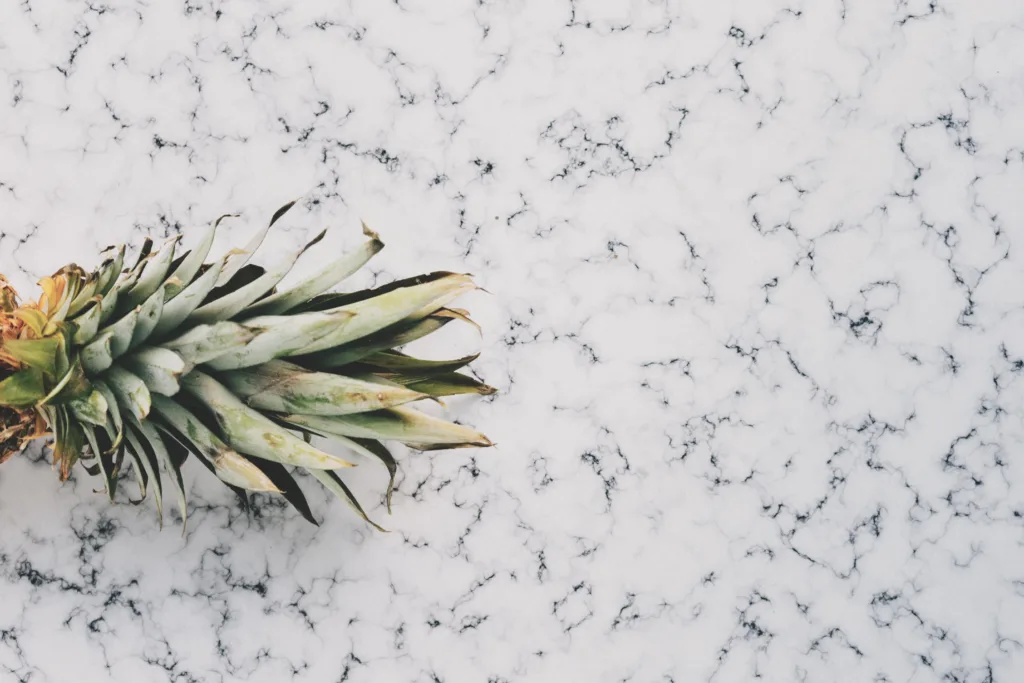Quartz is a popular countertop material that has been used in interior design for many years. It is a natural mineral that is found in abundance in the Earth’s crust. However, the quartz that is used in countertops is not always natural. In fact, most of the quartz used in countertops today is man-made.
Man-made quartz is created through a process that involves combining ground quartz crystals with a resin binder. The resulting material is then molded into slabs or other shapes that can be used as countertops, flooring, or other decorative elements. The process of making man-made quartz allows for a wide range of colors and patterns to be created, making it a popular choice for homeowners and designers alike.
One of the main advantages of man-made quartz is that it is extremely durable. It is harder than granite, which means that it is less lkely to scratch or chip. Additionally, man-made quartz is non-porous, which means that it does not absorb liquids or bacteria. This makes it easy to clean and maintain, making it a popular choice for kitchens and bathrooms.
Another advantage of man-made quartz is that it is heat-resistant. However, it is important to note that excessive heat can damage man-made quartz. It is recommended that you use heating pads or other protective measures when placing hot pots and pans on quartz countertops.
Man-made quartz is also a more environmentally friendly option than natural quartz. Because it is made from ground quartz crystals, it does not require the mining and extraction of large amounts of natural resources. Additionally, man-made quartz can be recycled, which helps to reduce waste and conserve resources.
Man-made quartz is an excellent choice for those looking for a durable, low-maintenance, and environmentally friendly countertop option. It offers a wide range of colors and patterns, making it a versatile choice for any interior design project.
What’s The Difference Between Quartz And Man-made Quartz?
Quartz and man-made quartz, also known as engineered quartz, are two different types of countertop materials. While both are made from quartz crystals, the process of manufacturing them is different.
Quartz, also known as natural quartz or quartzite, is a natural stone that is mined from the earth. It is made up of around 90-95% quartz crystals, along with other minerals such as feldspar, mica, and other trace elements. Quartz is a durable and heat-resistant material that comes in a variety of colors and patterns.
On the other hand, man-made quartz is a composite material that is made by combining natural quartz crystals with resins, pigments, and other materials such as bits of glass. This process results in a non-porous and durable countertop material that is resistant to stains, scratches, and heat.
The main difference beteen quartz and man-made quartz is the manufacturing process. While quartz is a natural stone that is mined from the earth, man-made quartz is a manufactured product that is created in a factory. Additionally, man-made quartz can be produced in a wider range of colors and patterns, as the manufacturing process allows for greater flexibility in design.
While both quartz and man-made quartz are composed of quartz crystals, the manufacturing process and resulting properties differ between the two materials.

Is Quartz Better Than Granite?
Quartz is generally considered better than granite for countertops. This is because quartz is harder and more durable than granite, making it nearly indestructible. Additionally, quartz is non-porous, which means it doesn’t absorb liquids or bacteria like granite does. This makes it easier to keep clean and relatively bacteria-free. However, it’s important to note that quartz can be damaged by excessive heat, so it’s important to use heating pads with cooking pans to avoid damaging the surface. if you’re looking for a durable, low-maintenance countertop option, quartz is a great choice.
Is There A Man-made Quartz?
There is man-made quartz available in the market. Man-made quartz, also known as engineered quartz, is a stone option that is produced by mixing natural quartz with a resin binder and pigment. The process involves crushing natural quartz into small pieces and then mixing it with a resin binder to create a slab. The mixture is then heated and compressed to create a solid, durable surface.
The resulting product is a non-porous and stain-resistant material that is ideal for use in countertops, flooring, backsplashes, and oter interior applications. Man-made quartz offers a wide range of colors and patterns, making it a popular choice among homeowners, designers, and contractors.
It is important to note that man-made quartz should not be confused with natural quartzite, which is a natural stone that is quarried from the earth and has different properties and characteristics.
What Is Quartz Made Out Of?
Quartz is primarily composed of silicon dioxide, which is a hard and crystalline mineral. The chemical formula of quartz is SiO2, which means that it consists of silicon and oxygen atoms that are linked in a continuous framework of SiO4 silicon-oxygen tetrahedra. In this framework, each oxygen atom is shared between two tetrahedra, resulting in a strong and rigid structure. The mineral quartz is known for its durability and resistance to heat, as well as its transparency and various colors. Some of the othr elements that may be present in quartz include aluminum, lithium, sodium, potassium, and titanium. However, the exact composition of quartz can vary depending on the specific type and location of the quartz deposit.

Conclusion
Quartz is a man-made countertop material that is engineered using natural quartz crystals, resins, pigments, and other materials. This process creates a highly durable, non-porous countertop that is resistant to bacteria and comes in a wide range of colors and designs. Quartz is a hard mineral composed of silica and is almost indestructible, making it a popular choice among designers and contractors. While quartz is highly resistant to heat, it is important to use heating pads to prevent damage. quartz is a versatile and attractive option for those looking for a durable and low-maintenance countertop material.
